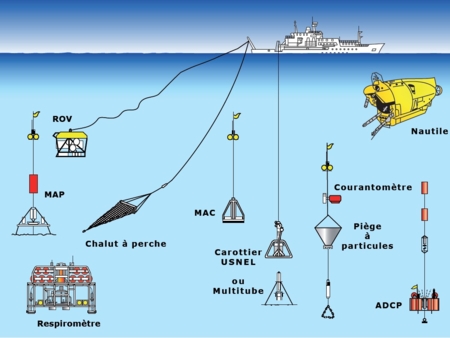Deep sea spy: An online citizen science annotation platform for science and ocean literacy
Published in Ecological informatics
Matabos, M., Cottais, P., Leroux, R., Cenatiempo, Y., Gasne-Destaville, C., Roullet, N., Sarrazin, J., Tourolle, J., Borremans, C. (2025)
The technology to acquire and process underwater marine imagery has significantly evolved in recent years. As result, the use of in situ imaging sensors to study marine animal communities has grown at an unprecedented rate over the last decade creating a bottleneck in our ability to process these large volumes of data. The Deep Sea Spy application (www.deepseaspy.com), developed at the Deep Sea Lab at Ifremer (Brittany, France), enables citizens to contribute to the annotation of pictures captured by deep-sea observatories deployed at hydrothermal vents on the Mid-Atlantic (EMSO-Azores) and Juan de Fuca (Ocean Networks Canada) ridges. A recent paper, published in the scientific journal Ecological Informatics, introduces the online platform, its associated database and strategies for recruiting new participants. A comparison between citizen-generated annotations and expert data was conducted to evaluate the performance and accuracy of participants. Our results highlight the potential of citizen science for observing and monitoring ecosystems, by harnessing the participation of over a thousand citizens. Based on these results, we propose a methodology and the associated digital tools – including a R package – to aggregate annotations from multiple contributors, and establish a numerical workflow for the validation of citizen-generated data. This approach can be applied to existing or future citizen projects using imagery data, such as the Ifremer image annotation platform Ocean Spy (https://ocean-spy.ifremer.fr/).
This new way of ‘doing science’ helps bridging the gap between science and society by actively engaging citizens in the research process and knowledge acquisition. Deep sea Spy goes beyond a simple citizen science project; it rather constitutes a full scientific programme, that not only facilitates the processing of a large volume of imagery data, but also provides a platform for ocean literacy through media, public events and conferences, as well as educational resources for kids and teachers. A special programme dedicated to schools encourages young generations to engage in the scientific process while raising awareness on environmental and societal challenges related to deep-sea ecosystem conservation.







